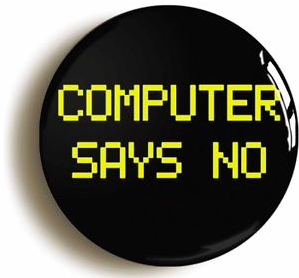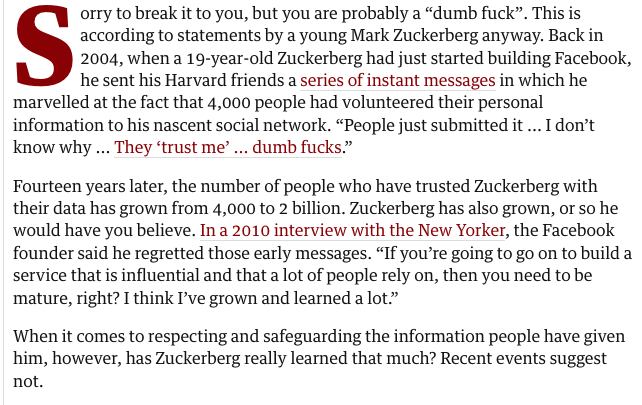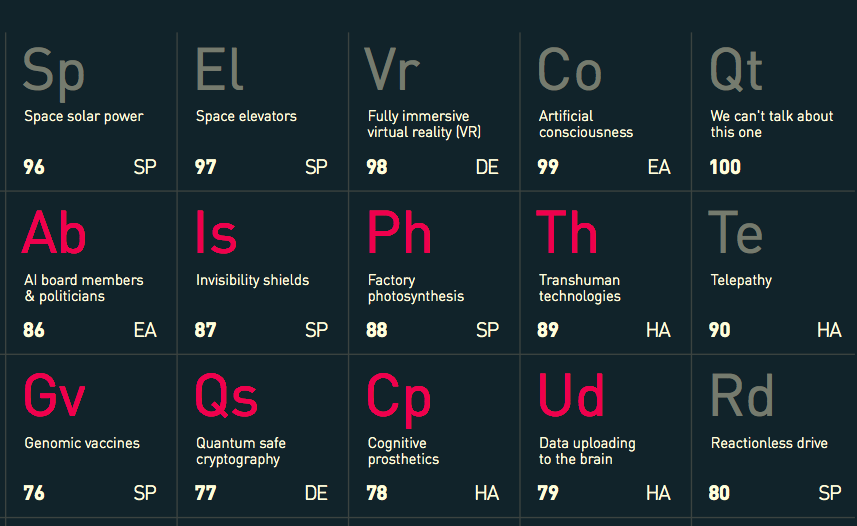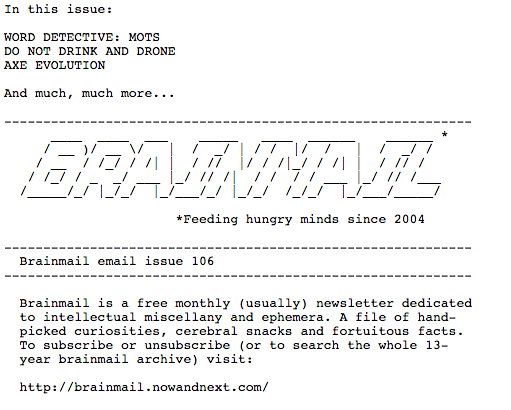This screamed out at me while reading the Weekend FT on a plane. “The so called Milton Hersley School Trust has an eye-popping $12 billion in assets.”
Monthly Archives: March 2018
Instant stupidity
Really? Anything? In 5 minutes? So string theory then? Quantum physics? Brain surgery? Kant’s Critique of Pure Reason? Joyce’s Ulysses? Gimme a break. This is a key problem with the internet. Information is now essentially free to create and distribute. There are no longer any barriers or filters, which means that anyone can create content, including people that really shouldn’t. But the real problem isn’t the people creating this kind of nonsense (literally non-sense), it’s the people that willingly consume it without thinking. And we wonder how we created Trump.
Quote of the week
Delete Facebook
The response from Facebook (or rather the complete lack of a response) in light of the Cambridge Analytica scandal is woeful. Only one thing to do. This btw, is from the Guardian and pretty much sums up Zuck’s attitude don’t you think?
Oh, one other thing. Eton. I think the school bears some responsibility for Alexander Nix. Something I wrote last year below…
Another consideration is that, by default, any narrow focus on academic subjects gives certain supposedly intelligent students tacit permission to behave like complete psychopaths at school and later within society at large.
If the system doesn’t value or measure morality or good character then it turns a blind eye to people that don’t have any and who, quite frankly, shouldn’t be let into or out of school in the first place. Under the current system, all that counts is that students pass their exams. What many schools want are kids that achieve high scores, thereby making their own rankings look good. From there ‘successful’ students can move seamlessly into a handful of top universities and thereafter into a select group of organisations. At this point their confidence most likely solidifies into arrogance and their brains go to their heads. Have you met any modest CEOs recently?
Am I the weak signal?
Just about to do a talk on weak signals. But I’ve had a thought. What if I am the weak signal? What if I am the canary in the cage?
Looking back at what I’ve written about the economy, Europe, the internet, smart phones, social media and even Russia over the last 13 years I have been right far more than I’ve been wrong. Usually I’ve been 5-10 years ahead of other people too.
My next book was going to be about thinking, but maybe that’s precisely what I need to stop doing. I need to disconnect. I think I’m descending into madness, which I hope is just me and not everyone else in 5-10 years time. Seems I’m not alone though.
Facebook Fatigue
This article is worth 2 minutes of your time. Time Facebook grew up and starting taking some responsibility.Worrying that they are in the orifices (sic) of Cambridge Analytica as I write this. Why?
Disruptive Technologies
Having just attendeed an AI conference at Cambridge, I’m fairly certain that machine consciousness isn’t very likely and therefore the positioning of it (or, at least, artificial consciousness – number 99) on my Table of Disruptive Technologies is about right. It’s not impossible, but it’s very very unlikely.
The only proviso here is, of course, what one means by consciousness. We are still struggling to describe it, let alonge create it, although I personally belive that it could be a spectrum. We tend to think of things as either being conscious or not. But what if every living thing from grass and trees and cats to humans have it in varying degrees? How you then jump to replicating consciousness in a machine if still another thing altogether, although since the AI conference was about AI in Sci-Fi and fantasy film and literature perhaps I can suggest that maybe every physical object is also on this spectrum?
BTW, on the subject of narrow AI versus general AI (AGI), I’m similarly skeptical. I have no doubt whatsover that narrow AI will broaden and that task specific algorithms and robots will expand their capabilities and skills, but coding ‘the world’ or all of human capabilities and experience seems, shall we say, ambitious. Even if you could code intuition and common sense, humans are emotional and irrational and do not always follow if/then rules. This is surely what makes us uniquely human and, dare I, say interesting.
Artificial Intelligence & The Future of Religion
My dream project? Scenarios for the future of religion. Maybe one day. In the meantime, a good article on the impact of AI on religion here.
AI in Sci-Fi
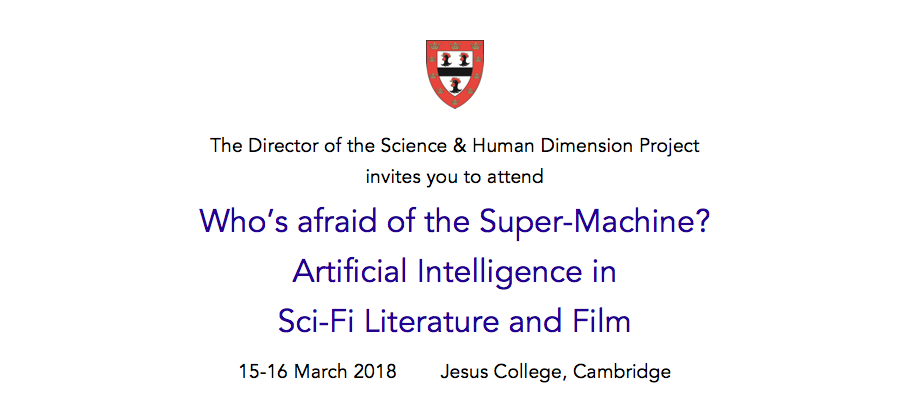 This is going to be fun…
This is going to be fun…
Science & Human Dimension Project.
Brainmail issue 106
It’s back. Issue 106 is live and on this link.


